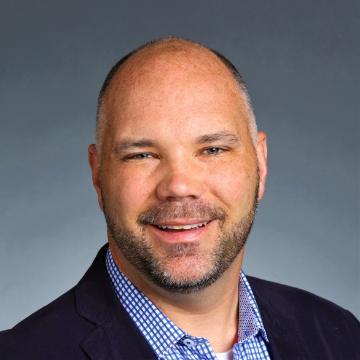Engineering and the Good Life

In the constantly shifting landscape of technology and innovation, engineers emerge as the visionary creators of the future. With that much responsibility, there is a need for engineers to not only possess the technical competence to create this evolving landscape but also the necessary resources to create it ethically. Championed by the School of Engineering’s Director of Ethics Programs and Initiatives, Dr. Matthew Gaudet, the "Engineering and the Good Life" program addresses this need. This program is an embodiment of Santa Clara University's commitment to Jesuit values, which include academic excellence, education of the whole person, commitment to students, and service to others. It places a strong emphasis on the integration of ethics and societal responsibility into every facet of learning. Engineering and the Good Life is a transformative initiative designed to reshape engineering education by seamlessly integrating ethics throughout the curriculum. The program also helps students understand how their work affects society and encourages them to do good with their skills and knowledge.
Dr. Matthew Gaudet is a passionate advocate for a strong ethical foundation within the engineering field. He has many years of research in and experience teaching philosophy, ethics, and engineering, and for the past five years, he has been a Lecturer in SCU’s Department of General Engineering, focusing on the intersection of ethics and technology. Because of his dedication to this topic, in 2022, Dr. Gaudet was made the School’s first Director of Ethics Programs and Initiatives. In this position, he is focusing on making sure ethics touches every part of the engineering education.
The School of Engineering envisions an engineering community that inspires and develops engineering leaders of competence, conscience, and compassion—entrepreneurial thinkers who will build a more just, humane, and sustainable world. “The Engineering and the Good Life program aligns with our vision and Jesuit values by encouraging students to perceive themselves as engineers with a moral responsibility to society,” said Dr. Gaudet. It seeks to enlighten students about the ethical dimensions of their work and how engineering decisions can impact humanity and the environment. Additionally, this program connects engineering students with the broader concept of the good life and how technology can contribute to it. It underscores the importance of integrating ethics, values, and technology in engineering education.
A significant part of engineering ethics revolves around the trust that the public places in engineers. People rely on engineers to guarantee the safety and welfare of the community. This trust forms the foundation of their ethical duties, emphasizing the need for engineers to have the right skills and understanding to maintain this trust and behave ethically in their work. “We need to make sure that our technologies are being built with ethical considerations in mind, and engineering should have a purpose beyond just financial gain,” said Dr. Gaudet. Moreover, engineering ethics must acknowledge the profound influence of culture and ideas on technology and engineering choices. Engineers must consider these cultural dynamics and their ethical implications as they shape their work. By doing so, they can navigate the complex intersection of technology and society with a heightened sense of responsibility and integrity.
According to Dr. Gaudet, bridging the disciplines of engineering, ethics, and philosophy, encourages responsible and ethical engineering practices by focusing on real-world problem-solving. Instead of imposing a particular ethic on students, Dr. Gaudet provides them with frameworks, language, and tools–empowering the students to articulate and integrate their existing ethical beliefs into their engineering work. This fosters critical thinking and autonomous ethical decision-making.
Dr. Gaudet acknowledges that students often enter engineering with a desire to serve the public good, but an overemphasis on technical education can make them lose sight of this during their education. Educators play a vital role in helping students hold onto this passion throughout their engineering careers, ensuring that they always consider ethics as a top priority in their professional lives. Engineering and the Good Life will allow students to have a better understanding of ethics and responsibility in an era of rapid technological advancement, so they can contribute to creating a more ethical and responsible future of engineers who are trusted and respected, taking on the role of guardians of technology and humanity. Engineering and the Good Life demonstrates Santa Clara University's commitment to its Jesuit values, emphasizing the importance of integrity, service, and care for others in the pursuit of academic and professional excellence.